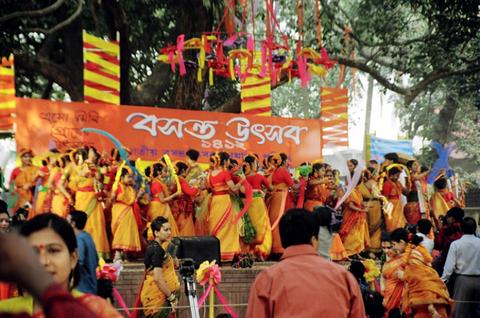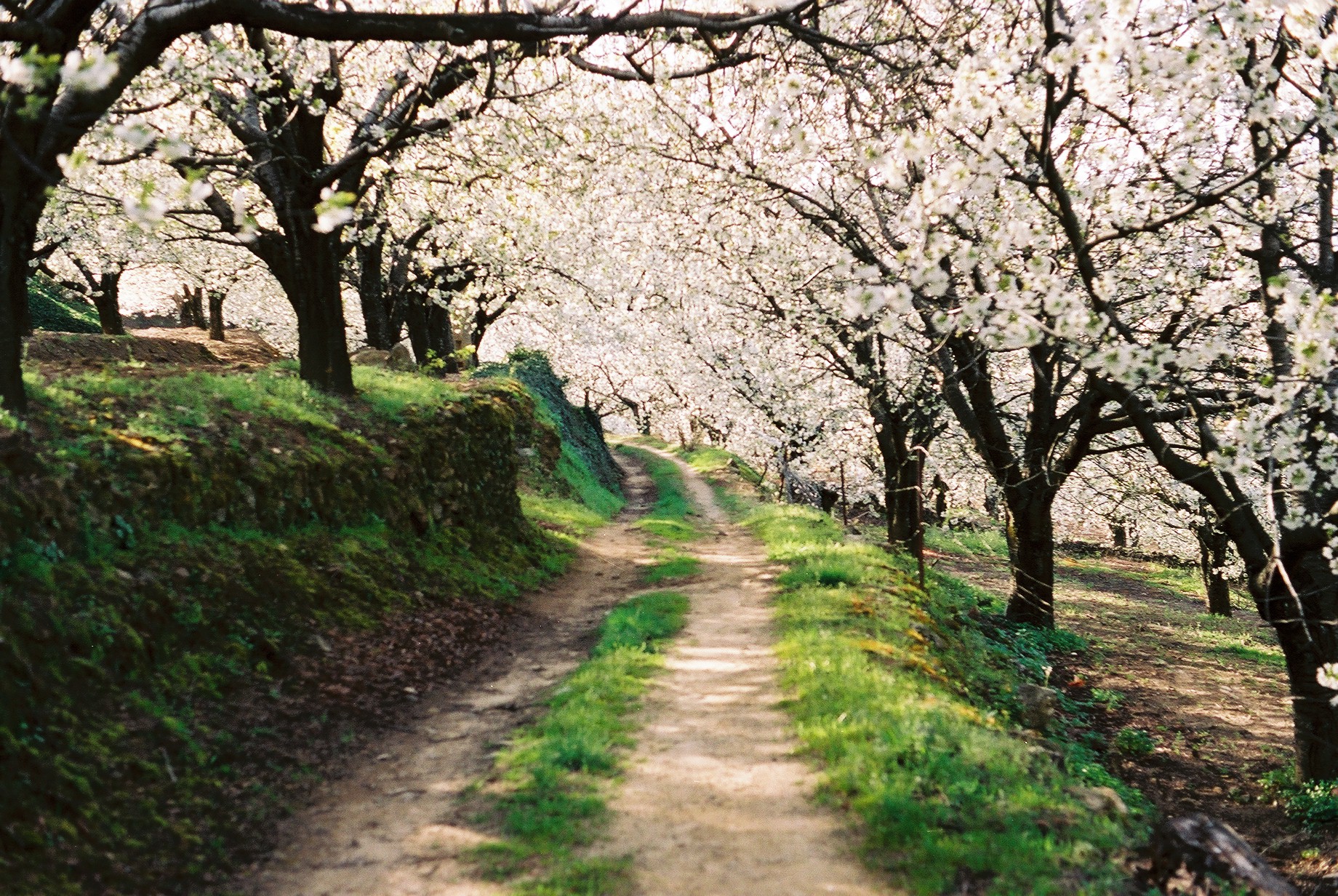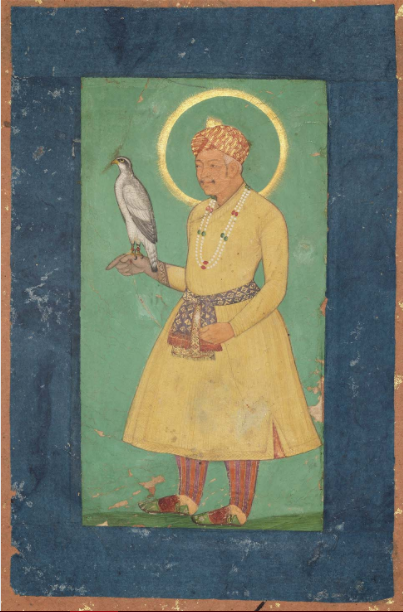|
Choitro
Choitro ( bn, চৈত্র) is the last month of the Bengali calendar. It falls from mid-March to mid-April and is the last month of Spring ( bn, বসন্ত ''Bôsôntô''). The name of the month is derived from the star Chitra ( ''Chitra''). Culture Traditionally this month is famous for what is called the "Choitro Sale" () when all shopping prices fall discounted (sale) all throughout the month. It is traditionally done in order to sell away all remaining products by the end of year, so that the Haal Khata (), the new account book can be opened on the New Year's Day. Choitro Sankranti is observed in the last day of the month and the last day of the Bengali Calendar. It is celebrated more in rural areas than in urban areas, where it has celebrated for hundreds of years. It is the day before Pohela Boishakh and it more popular than Pohela Boishakh in rural areas. Observances * Choitro 12 - Independence Day (Bangladesh) * Chotiro 30 - Choitro Sankranti * Thursday or F ... [...More Info...] [...Related Items...] OR: [Wikipedia] [Google] [Baidu] |
Falgun
Falgun or Phalgun (; ne, फाल्गुण) or Phagun ( as, ফাগুন) is the eleventh month of the year in the Bengali calendar, the Assamese calendar, and the Nepali calendar. In the revision of the Bengali calendar used in Bangladesh since October 2019, the month has 29 days in common years or 30 in leap years of the Gregorian calendar. In the previous version of the calendar, used in Bangladesh from 1987 through October 2019, Falgun had 30 days in common years or 31 days in leap years. The month has 29 or 30 days, based on the true movements of the Sun, in the old non-reformed Bengali calendar, still used in West Bengal, and in the Nepali calendar. Falgun was named for the ''nakshatra'' (lunar mansion) ''Uttara phalguni'', in the vicinity of which the full moon appears at that time of the year. It marks the arrival of spring, the sixth and final season in Bangladesh, West Bengal, Assam, and Nepal. Falgun falls between mid-February and mid-March on the Gregorian cale ... [...More Info...] [...Related Items...] OR: [Wikipedia] [Google] [Baidu] |
Boishakh
Boishakh (, ne, बैशाख, ''Bôishakh'', ''Baishakh'') is the first month in the Assamese calendar, Bengali calendar and Nepali calendar. This month lies between the second half of April and the first half of May. Etymology The name of the month is derived from the position of the Sun near the star Bishakha (). History The first day of Boishakh is celebrated as the Pôhela Bôishakh or Bengali New Year's Day. The day is observed with cultural programs, festivals and carnivals all around the country. The day of is also the beginning of all business activities in Bangladesh and neighboring Indian state of West Bengal and Tripura. The traders starts new fiscal account book called ''Halkhata''. The accounting in the ''Halkhata'' begins only after this day. It is celebrated with sweets and gifts with customers. Season The month of Boishakh also marks the official start of Summer. The month is notorious for the afternoon storms called Kalboishakhi (''Nor'wester''). ... [...More Info...] [...Related Items...] OR: [Wikipedia] [Google] [Baidu] |
Bengali Calendar
The Bengali Calendar or Bangla Calendar ( bn, বঙ্গাব্দ , , Baṅgābda), colloquially ( bn, বাংলা সন, Baṅgla Śon), is a solar calendar used in the Bengal region of the Indian subcontinent. A revised version of the calendar is the national and official calendar in Bangladesh and an earlier version of the calendar is followed in the Indian states of West Bengal, Tripura and Assam. The New Year in the Bengali calendar is known as ''Pohela Boishakh''. The Bengali era is called ''Bengali Sambat'' (BS) or the ''Bengali year'' ( ''Bangla Sôn'', ''Bangla sal'', or ''Bangabda'') has a zero year that starts in 593/594 CE. It is 594 less than the AD or CE year in the Gregorian calendar if it is before ''Pôhela Bôishakh'', or 593 less if after ''Pôhela Bôishakh''. The revised version of the Bengali calendar was officially adopted in Bangladesh in 1987. Among the Bengali community in India, the traditional Indian Hindu calendar continues to be in use ... [...More Info...] [...Related Items...] OR: [Wikipedia] [Google] [Baidu] |
Flowers Of Bangladesh24
A flower, sometimes known as a bloom or blossom, is the reproductive structure found in flowering plants (plants of the division Angiospermae). The biological function of a flower is to facilitate reproduction, usually by providing a mechanism for the union of sperm with eggs. Flowers may facilitate outcrossing (fusion of sperm and eggs from different individuals in a population) resulting from cross-pollination or allow selfing (fusion of sperm and egg from the same flower) when self-pollination occurs. There are two types of pollination: self-pollination and cross-pollination. Self-pollination occurs when the pollen from the anther is deposited on the stigma of the same flower, or another flower on the same plant. Cross-pollination is when pollen is transferred from the anther of one flower to the stigma of another flower on a different individual of the same species. Self-pollination happens in flowers where the stamen and carpel mature at the same time, and are positi ... [...More Info...] [...Related Items...] OR: [Wikipedia] [Google] [Baidu] |
Spring (season)
Spring, also known as springtime, is one of the four temperate seasons, succeeding winter and preceding summer. There are various technical definitions of spring, but local usage of the term varies according to local climate, cultures and customs. When it is spring in the Northern Hemisphere, it is autumn in the Southern Hemisphere and vice versa. At the spring (or vernal) equinox, days and nights are approximately twelve hours long, with daytime length increasing and nighttime length decreasing as the season progresses until the Summer Solstice in June (Northern Hemisphere) and December (Southern Hemisphere). Spring and "springtime" refer to the season, and also to ideas of rebirth, rejuvenation, renewal, resurrection and regrowth. Subtropical and tropical areas have climates better described in terms of other seasons, e.g. dry or wet, monsoonal or cyclonic. Cultures may have local names for seasons which have little equivalence to the terms originating in Europe. M ... [...More Info...] [...Related Items...] OR: [Wikipedia] [Google] [Baidu] |
Chitra (nakshatra)
Chitra may refer to: Art * Chitra (art), a historic art that includes paintings, sketching with or without multiple colors People * Chithra, Indian playback singer * Chitra (actress), Indian film actress * V. J. Chitra, Indian television actress * Chitra Bahadur K.C., Nepalese politician * Chitra Banerjee Divakaruni (born 1956), Indian-American author, poet, and professor of English * Chitra Bharucha (born 1945), former Consultant Haematologist and Vice Chair of the BBC Trust * Chitra Dewi (1934–2008), Indonesian actress * Chitra Ganesh (born 1975), artist based in Brooklyn, New York * Chitra Lekha Yadav, Nepalese politician * Chitra Mudgal (born 1944), literary figure in modern Hindi literature * Chitra Sarwara (born 1975), Indian politician from Haryana * Chitra Singh (born 1945), female ghazal singer * Chitra Soman (born 1983), Indian sprinter * Chitra Subramaniam (born 1958), Indian journalist * Chitra Visweswaran, classical dancer Zoology * ''Chitra'' (genus), a tur ... [...More Info...] [...Related Items...] OR: [Wikipedia] [Google] [Baidu] |
Discounts And Allowances
Discounts and allowances are reductions to a basic price of goods or services. They can occur anywhere in the distribution channel, modifying either the manufacturer's list price (determined by the manufacturer and often printed on the package), the retail price (set by the retailer and often attached to the product with a sticker), or the list price (which is quoted to a potential buyer, usually in written form). There are many purposes for discounting, including to increase short-term sales, to move out-of-date stock, to reward valuable customers, to encourage distribution channel members to perform a function, or to otherwise reward behaviors that benefit the discount issuer. Some discounts and allowances are forms of sales promotion. Many are price discrimination methods that allow the seller to capture some of the consumer surplus. Types The most common types of discounts and allowances are listed below. Dealing with payment Prompt payment discount ''Trade disc ... [...More Info...] [...Related Items...] OR: [Wikipedia] [Google] [Baidu] |
Haal Khata
Haal Khata is a festival celebrated by Bengali merchants, shopkeepers and traders on Poila Boisakh (the first day of the Bengali Calendar) by opening a new ledger. History Mughal emperor Akbar established a new calendar based on the old solar Bengali calendar in 1584 to ease taxation. The Mughals used "Halkhata Mahurat" to collect taxes and the tradition of Haal Khata is believed to be originated from this. Haal Khata is a Bengali tradition that is over 430 years old. Haal means updating and Khata means ledger. Celebrations On the first day of the Bengali year, traders close old ledgers and open a new ledger for the new year. Customers are invited to settle old debts and start fresh. The event is marked by a special Puja by the Hindu traders & shopkeepers. Seeking to improve their relationship with customers, traders give sweets, snacks, or gifts to them. The festival is celebrated in Bangladesh and West Bengal, and Tripura, India India, officially the Republic of In ... [...More Info...] [...Related Items...] OR: [Wikipedia] [Google] [Baidu] |
Pohela Boishakh
Pohela Boishakh ( bn, পহেলা বৈশাখ) is the first day of the Bengali calendar which is also the official calendar of Bangladesh. This festival is celebrated on 14 April in Bangladesh and 15 April in the Indian states of West Bengal, Tripura, and Assam ( Barak Valley) by Bengalis regardless of religious faith. Celebration of Pohela Boishakh traces its roots back to Mughal rule in this region and also the proclamation of tax collection reforms of Akbar. The festival is celebrated with processions, fairs and family time. The traditional greeting for Bengalis in the new year is "''Shubho Noboborsho''" which is literally "Happy New Year". The festive '' Mangal Shobhajatra'' is organized in Bangladesh. In 2016, the UNESCO declared this festivity organized by the Faculty of Fine Arts, University of Dhaka as a cultural heritage of humanity. [...More Info...] [...Related Items...] OR: [Wikipedia] [Google] [Baidu] |
Pahela Baishakh
Pohela Boishakh ( bn, পহেলা বৈশাখ) is the first day of the Bengali calendar which is also the official calendar of Bangladesh. This festival is celebrated on 14 April in Bangladesh and 15 April in the Indian states of West Bengal, Tripura, and Assam (Barak Valley) by Bengalis regardless of religious faith. Celebration of Pohela Boishakh traces its roots back to Mughal rule in this region and also the proclamation of tax collection reforms of Akbar. The festival is celebrated with processions, fairs and family time. The traditional greeting for Bengalis in the new year is "''Shubho Noboborsho''" which is literally "Happy New Year". The festive '' Mangal Shobhajatra'' is organized in Bangladesh. In 2016, the UNESCO declared this festivity organized by the Faculty of Fine Arts, University of Dhaka as a cultural heritage of humanity. [...More Info...] [...Related Items...] OR: [Wikipedia] [Google] [Baidu] |
Independence Day (Bangladesh)
The Independence Day of Bangladesh ( bn, স্বাধীনতা দিবস ''Shadhinôta Dibôsh''), which takes place on 26 March, is a Bangladeshi national holiday. It commemorates the country's declaration of independence from Pakistan in the early hours of 25 March 1971. History In the 1970 Pakistani general election, under the military government of President Yahya Khan, the largest political party Awami League, led by Bangabandhu Sheikh Mujibur Rahman, won a clear majority in East Pakistan national seats as well as provincial assembly. Zulfikar Ali Bhutto conspired with Yahya Khan and changed their position, refusing to hand over power to Sheikh Mujib. Negotiations began between the two sides, however the ruling West Pakistani leadership did not trust Sheikh Mujib, due to instances such as the Agartala conspiracy case. When it became evident that the promises made by the West Pakistan government were not going to be kept, many East Pakistani Bangla-speaking Musli ... [...More Info...] [...Related Items...] OR: [Wikipedia] [Google] [Baidu] |







